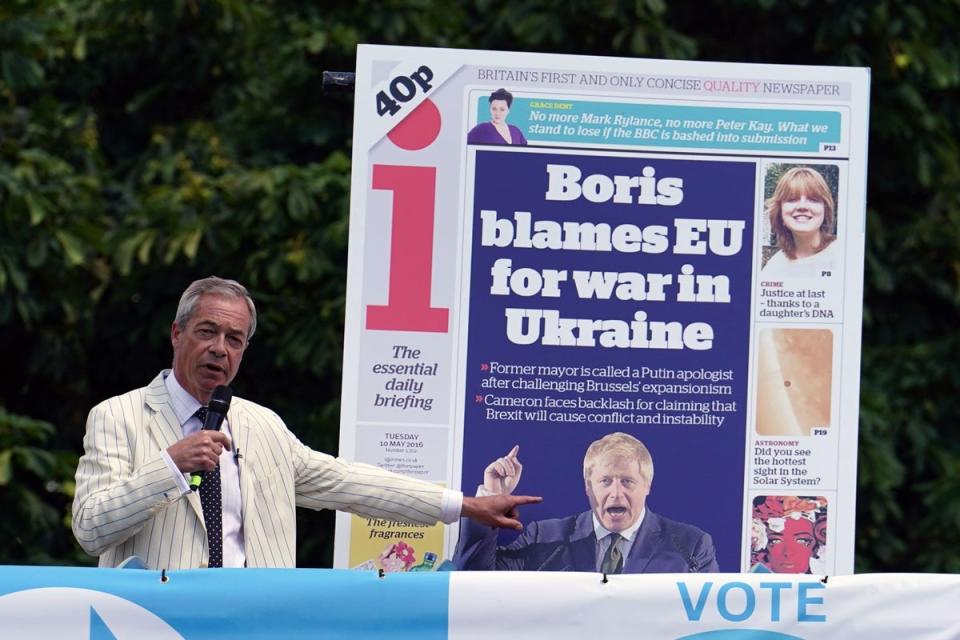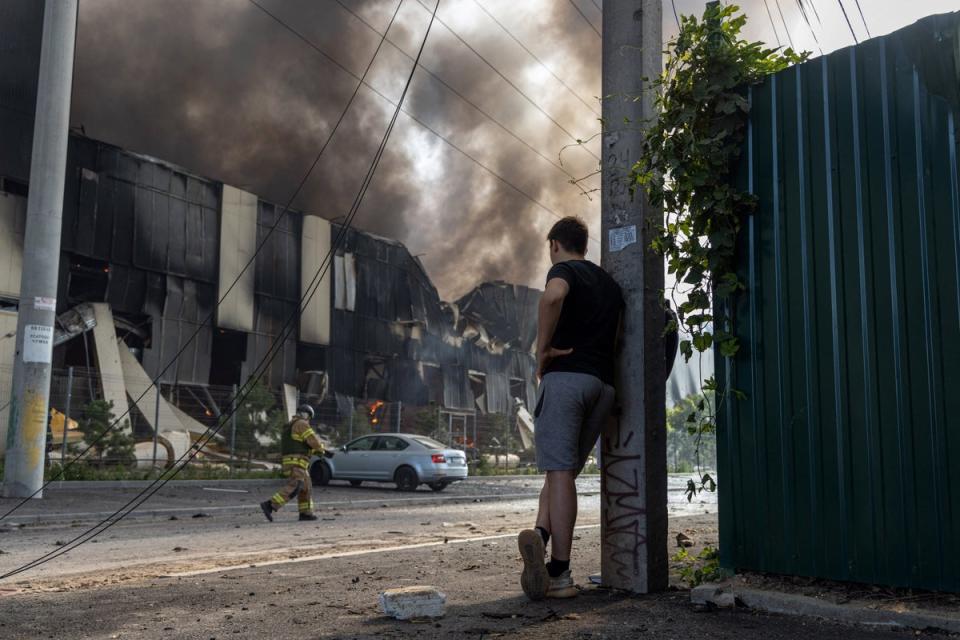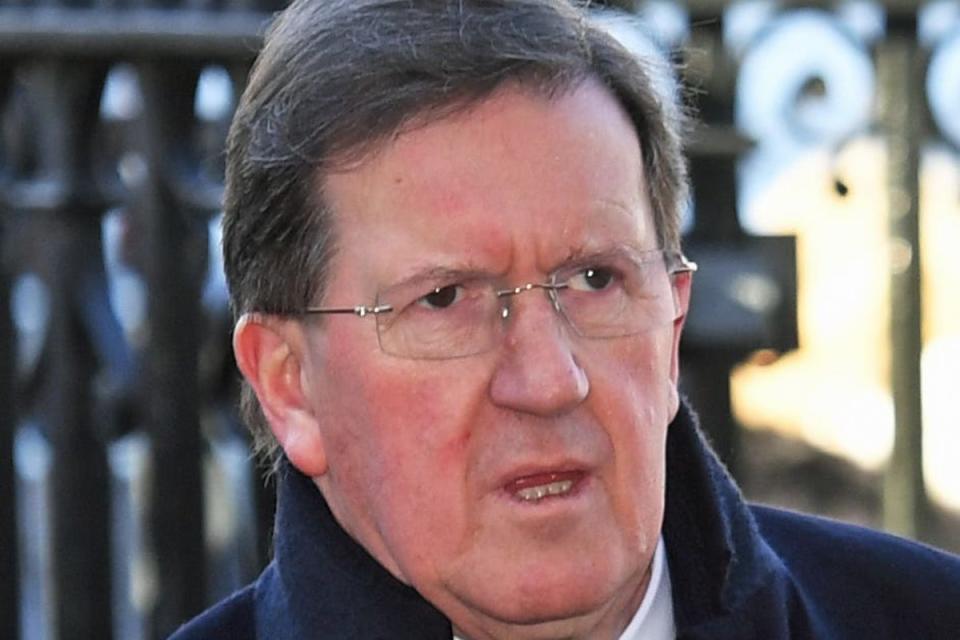Nigel Farage under fire for ‘cuddling up to the Kremlin’ as IFS accuses Reform of poisoning election debate
Nigel Farage has come under fire for “cuddling up to the Kremlin” as a leading think tank accused his Reform party of poisoning the election debate.
On another torrid day for the ex-Ukip leader, military experts queued up to criticise his claim that the West provoked Russia’s war on Ukraine.
It follows days of condemnation both nationally and internationally over Mr Farage’s comments, which he made in a BBC interview on Friday night.
In an apparent attempt to change the conversation, Mr Farage made another incendiary claim – that there had been an “invasion” of people arriving in the UK on small boats.

Mr Farage’s words echo comments by the former home secretary Suella Braverman, who was roundly condemned while in office for warning of an “invasion” on the south coast.
But he was also attacked on a different front, as the Institute for Fiscal Studies (IFS) accused Reform UK of making “unattainable” tax claims that the think tank said had helped to “poison the entire political debate”.
The IFS accused parties of a “conspiracy of silence” over the “painful” economic decisions that would have to be made after the election, and said it would be a surprise if there are no further tax rises in the next five years.
As he fought back after days of criticism, Mr Farage hit out at former prime minister Boris Johnson for labelling his views on Ukraine “morally repugnant”.
At an event in Kent, the Reform leader unveiled a large poster of a 2016 newspaper front page with the headline “Boris blames EU for war in Ukraine”.
Mr Farage said: “Well, perhaps it’s Boris Johnson that’s morally repugnant and not me, I don’t know. But can you see the sheer level of hypocrisy?”
He added that he would “never, ever defend” Russian president Vladimir Putin.

On Friday, Mr Farage told a BBC Panorama special that “we provoked this war”. He said the European Union’s expansion, as well as Nato, had provided Mr Putin with an “excuse” for his invasion.
George Robertson, the former head of Nato, accused Mr Farage of “cuddling up to the Kremlin”. He told LBC it was “total nonsense” that the West had provoked Russia into invading Ukraine.
Lord Robertson said: “Nigel Farage today has shown his real colours by this sort of, you know, appeasement,” adding: “One of my successors at Nato ... crisply summed it up – if Russia stops fighting, there will be peace. If Ukraine stops fighting, there will be no Ukraine. That sums it up, and I think Nigel Farage should listen to that.”
A former head of the army, General Sir Richard Dannatt, said Mr Farage did not “have a point worth listening to about anything”.

Earlier, Rishi Sunak again hit out at Mr Farage’s comments, saying: “You all heard what Nigel Farage said about Ukraine. That plays into Putin’s hands. That kind of appeasement is dangerous for Britain’s security, the security of our allies that rely on us, and will only embolden Putin.”
In a bid to change tack, Mr Farage tried to switch the conversation to small boat crossings in the Channel.
He said: “Remember I went out four years ago, again and again, into the Channel to highlight what was going on, to say you might as well put a sign on the white cliffs of Dover saying ‘Everyone welcome’.”
He added: “I warned that huge numbers would come, I even said there might be an invasion, which is of course the rudest word you could possibly use in BBC land, but now 4,000 boats and 128,000 people later, it does look like it’s been an invasion to me – and it’s mostly young men.”

 Yahoo News
Yahoo News 
